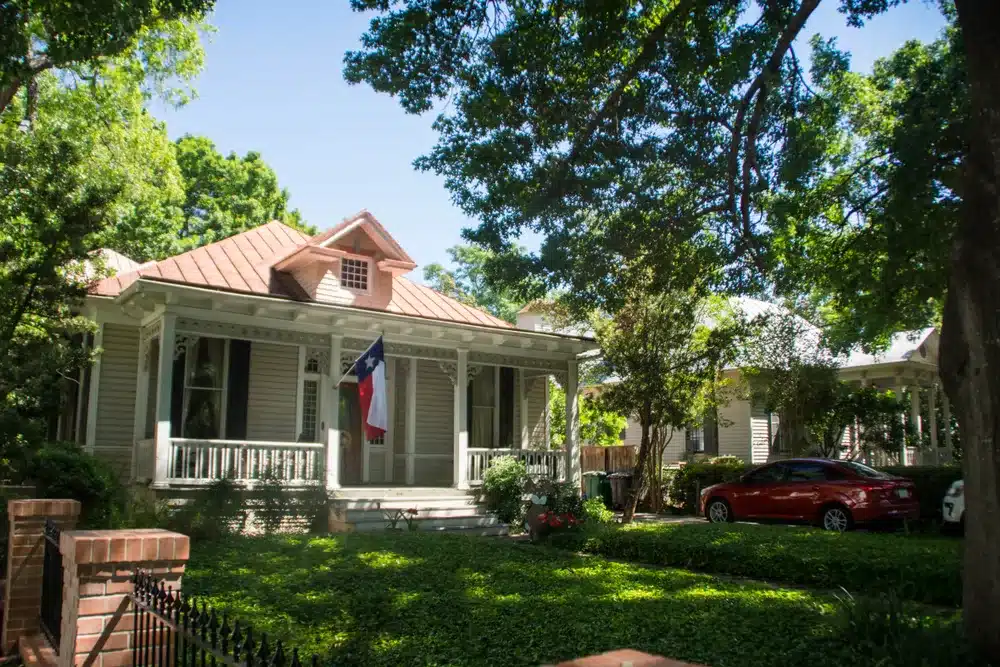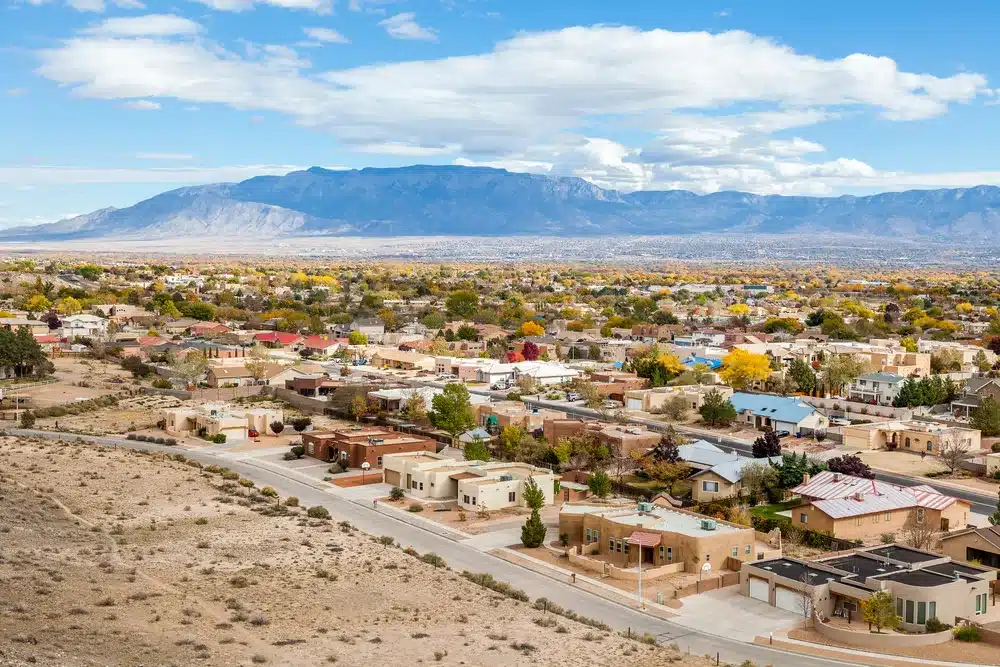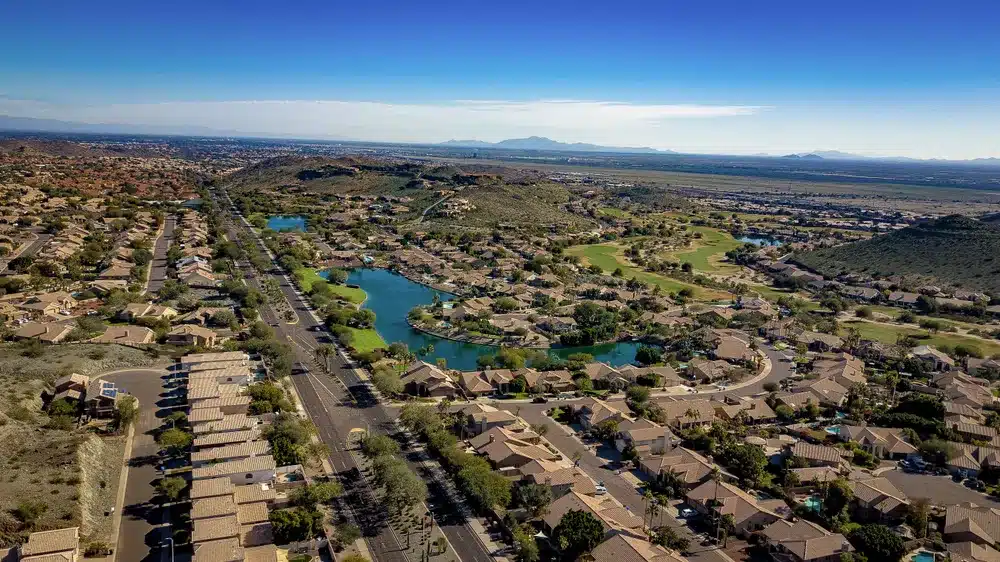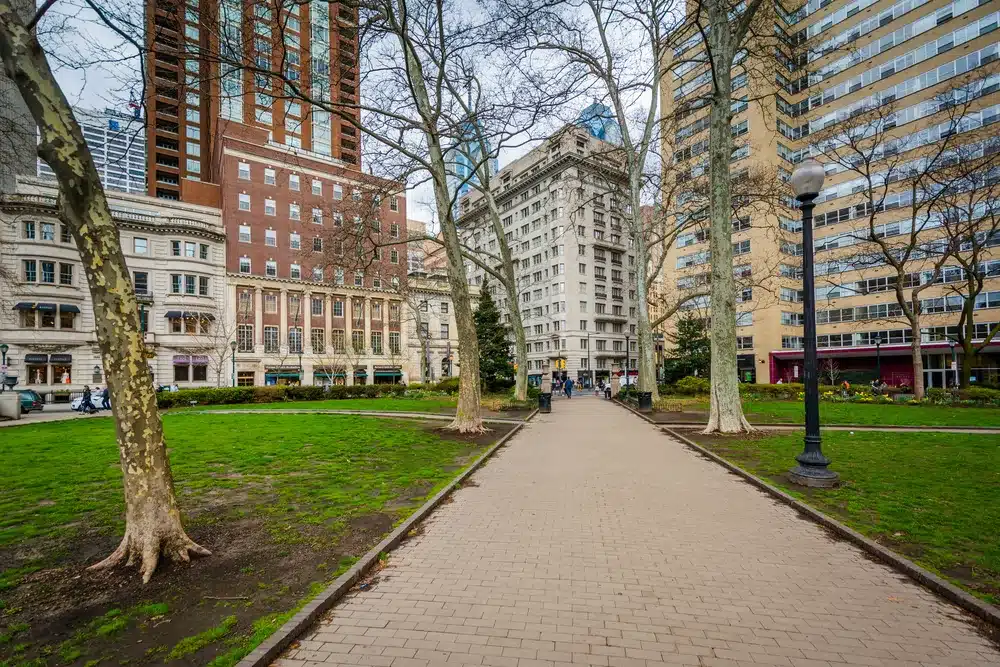Thinking of moving to Denver? We can’t blame you.
The capital of Colorado is situated a mile above sea level (thus the infamous nickname: Mile High City) and is surrounded by a beautiful mountainous landscape. It’s known for its great skiing, hiking, kayaking, fishing and other outdoor excursions. Needless to say, it’s a favorite of lovers of the outdoors and has plenty of things to keep you out in the sun.
The city’s strong economy has also drawn its share of startups and entrepreneurs, while the chill vibe and cultural scene have reeled in hipsters and art lovers. When you factor in the award-winning cuisine, big-city amenities and welcoming community, it’s no surprise that it’s one of the state’s most popular cities.
Cost of Living in Denver
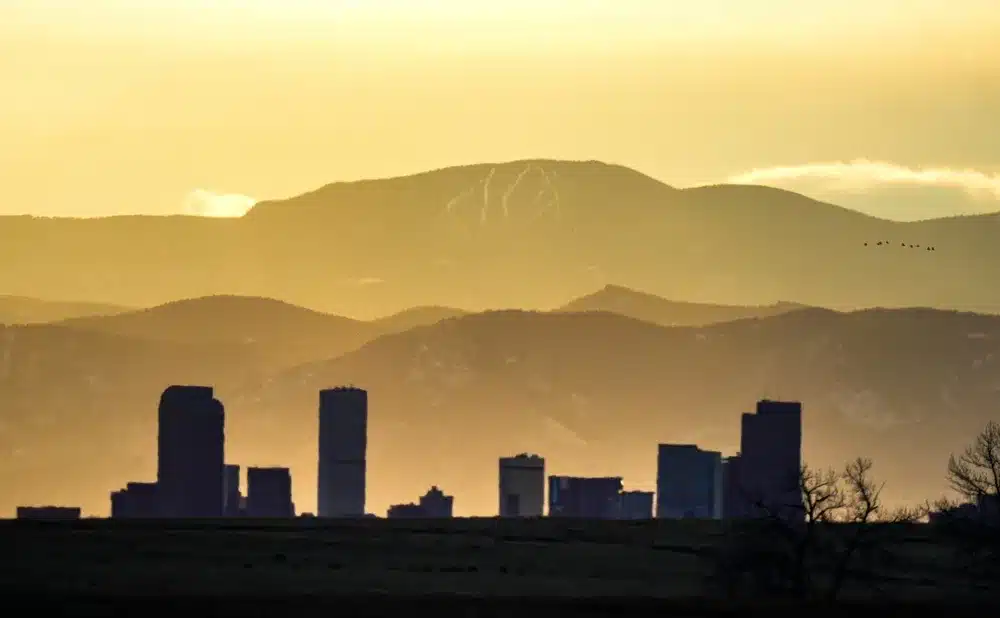
It’s no secret that Colorado is one of the most expensive states to live and save in, but some believe that living in Denver is worth the high cost.
The cost to live in Denver is about 4 percent higher than the state average and 10 percent higher than the national average, with the biggest hit to your pocket being housing. We’ll dive into details on Denver’s real estate in the next section, but housing costs here are about 30 percent higher than the U.S. housing average.
You can also expect to pay higher for food, transportation and other basic necessities, but you’ll save an average of 14 percent on utilities.
To help pay the difference, Denver residents enjoy a higher median household income of $85,853 per year, about $10,000 more than the U.S. household median.
Housing and Real Estate in Denver
Buyers get ready. After a few years reigning as one of the hottest cities to relocate to within the U.S., Denver’s housing market is finally shifting from being in favor of those selling their homes toward those buying homes. Although it’s still considered a very competitive market, houses are being listed for a little longer, with more going through price drops before finally selling.
You can still expect to shell out a bit to live here, though. Coming into July 2024, the median sale price was $590,000, up 1.5 percent over a year prior.
While rents in Denver are definitely higher than the U.S. average, renters will also find housing to be cooling off a smidge. Following steady growth, there was little change between August and September 2024, with the average rents about 1.3 percent lower than they were in 2023. Coming into September, the median rent for a one-bedroom apartment was $1,575, with the rent for a two-bedroom apartment a little higher at $1,962.
Check Out These Denver Neighborhoods
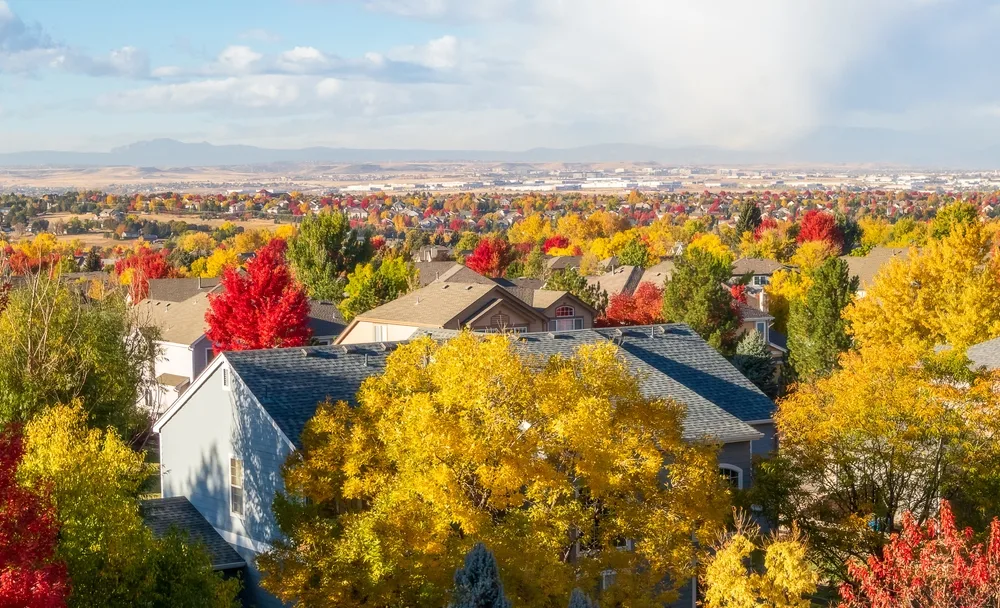
Denver is made up of 78 official neighborhoods, each with its own look, vibe and amenities to offer. Whether you’re a young professional, a family or someone looking to retire, you’ll find a great match for your tastes here. Here are a few of the best neighborhoods to consider when moving to Denver:
DOWNTOWN DENVER
Although this trendy neighborhood is great for a range of residents, young professionals especially will love living in the heart of Mile High City. Downtown is full of cultural attractions, great shopping and is one of the most walkable areas of the city.
CHERRY CREEK
Just a short drive from downtown and full of amenities, Cherry Creek is in demand (expect home costs to reflect that). Not only does this neighborhood offer great shopping and yummy restaurants, it also hosts several key events throughout the year, including the Cherry Creek Arts Festival and Smash Fine Arts Festival.
CAPITOL HILL
Capitol Hill is one of Denver’s oldest neighborhoods, boasting not only a central location but beautiful architecture. Many of its late-Victorian era mansions have been converted into townhomes, apartments and condos to meet a variety of lifestyles. Think there’s a catch? There’s not. Despite all this, Capitol Hill is affordable and loved by residents.
RIVER NORTH ART DISTRICT
Lovingly dubbed RiNo by locals, River North Art District is perfect for lovers of art, food and a bumping nightlife. This neighborhood is full of old warehouses that have undergone major redevelopment to become music venues, art galleries, restaurants and coffee shops.
WASHINGTON PARK
Washington Park is named for—you guessed it—the large park that is central to this neighborhood. There are plenty of biking trails, lakes and a beautiful lawn for families and anyone who loves spending time outdoors. This is also one of the safest neighborhoods in Denver and provides a happy medium between city and suburb.
What to Know About Denver’s Job Market
Following a rough patch during the height of the pandemic, Denver’s job market experienced a strong recovery period due in large part to an influx of young professionals and new businesses that were and continue to be drawn to the city. As the world settles into its new normal, however, that steady job growth has started to cool off, seen especially in the once-promising marijuana industry.
At 4.3 percent, unemployment numbers still remain lower than they did during 2020–21.
The good news is that the city is still home to a growing variety of industries, including aerospace, aviation, tech and innovation, finance and health.
Not sure where to start looking for that new job? You’ll find familiar names among the metro area’s top employers, including the Boeing Company, Lockheed Martin, RE/MAX and Western Union Co. The Denver International Airport and HealthONE Corporation, however, beat them all out as the city’s top employers.
Denver is a Highly Educated City
Moving to Denver with a love of learning? You won’t be alone! Over half of Denverites hold a bachelor’s degree or higher, with over a fifth of them having obtained at least one post-grad degree. In fact, in 2024, Mile High City ranked 11 out of 150 cities on a list of most educated cities in the U.S. (that marks a three-spot leap up the list from 2022).
There are several higher education institutions in the city and the surrounding metro area, including the University of Colorado, Denver, Regis University and of course University of Denver, the oldest private institution in the Rocky Mountain region.
For learners still making their way through the K-12 system, the Denver Public School district is made up of 207 schools serving nearly 100,000 students from kindergarten through high school. Among the best ranked public schools are Denver School of the Arts, Cherry Hills Village Elementary and Cherry Creek High.
If you would prefer your kids get a private school education, Denver has 107 private schools, giving you great options that best suit the needs of your family.
Recreation in Denver
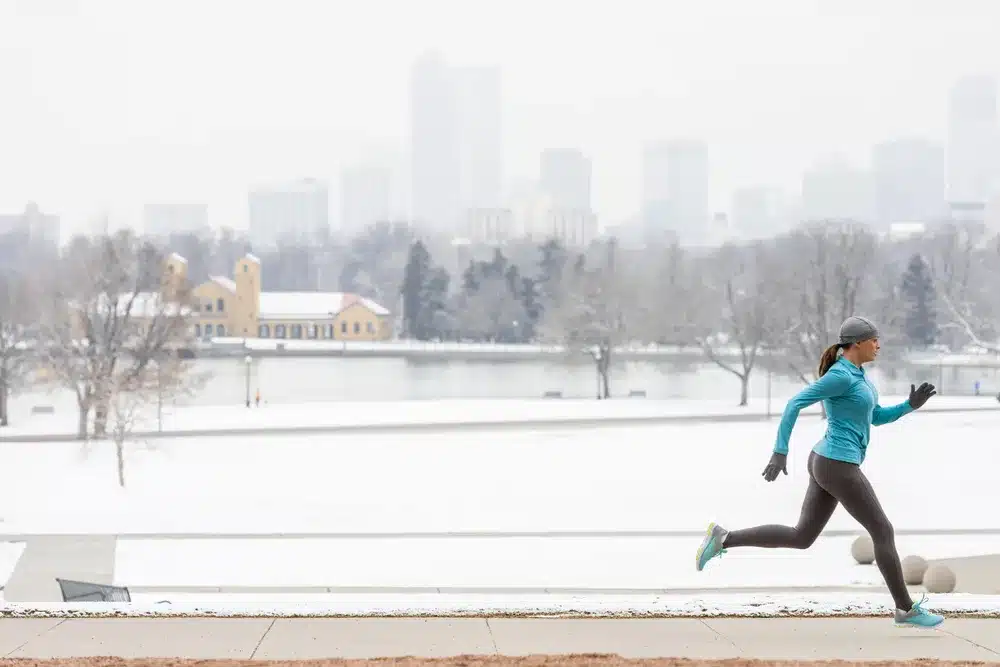
Denver, located in the South Platte River Valley, is known for the picturesque stretch of the Rocky Mountains backdropping the city. You’ll want to take advantage of all the opportunities for hiking, biking, camping, fishing and, of course, taking to the slopes.
The possibilities are endless here. If you’re not sure where to start, consider taking time to enjoy bison, deer and the endangered black-footed ferrets at Rocky Mountain Arsenal National Wildlife Refuge, or relax near the lakes and waterfalls of Rocky Mountain National Park.
If you’re feeling a little more adventurous (and you’ve adapted to the high altitude), you could check out Fair Winds Hot Air Balloon Flights and Rides for a new view of the Rockies.
Within the city itself you’ll find plenty of things to enjoy on sunny days. Explore the 24 acres of the Denver Botanic Gardens, which features a relaxing Japanese Garden and the Alpine Rock Garden, home to high-elevation alpine plants. The Denver Zoo is also a family favorite.
Denver is a Hub of Art and Culture
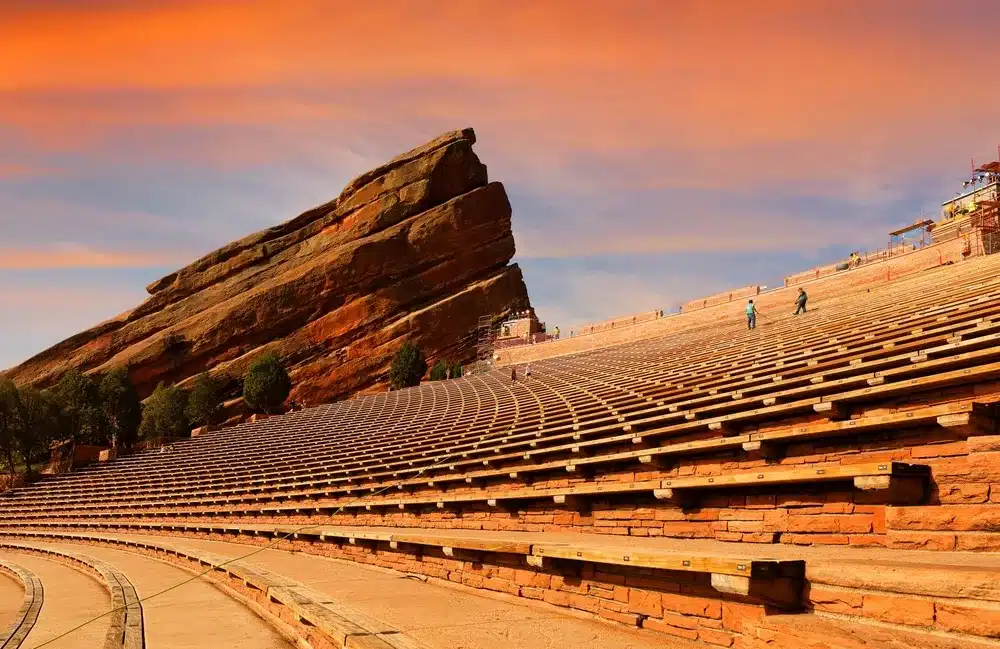
Denver’s cultural scene promises something for everyone just about every day of the year, from amazing craft breweries and unique music venues to world-class museums and touring Broadway shows.
The world-famous Red Rocks Amphitheater, a naturally formed outdoor venue, is a must for any music lover. Famous bands and musicians have played here, including Jimi Hendrix and the Beatles. The Fillmore Auditorium, once a roller rink, is another great music spot. Of course there are plenty of other places to experience live music, theater and more, including the Colorado Ballet, the Denver Center for the Performing Arts and the Colorado Symphony.
Art lovers and architecture lovers alike will appreciate the Denver Art Museum’s must-see Hamilton Building for its unique, angular shape. The museum itself contains extensive collections and exhibitions, as well as interactive activities for family-fun.
If you love a good festival, there’s no shortage of them here. You’ll have to check out the Colorado Dragon Boat Festival, Denver Chalk Art Festival, Five Points Jazz Festival, Denver Film Festival and others.
Weather in Denver
If you like snow, you’ll love Denver. This is one of the nation’s snowiest big cities, and with the Rockies just to the west of the city, you’ll want to take advantage of the great slope action.
In a fun twist, Mile High City also enjoys about 245 days of sunshine each year, and even on those snowy days you may experience temperatures up to 60 degrees. This is attributed mostly to the city being positioned so close to the Rockies and in the middle of “Hail Alley,” causing weather patterns that can shift significantly throughout the day.
Our recommendation? Layers! (And heated self-storage units of course)
You’ll feel the cold most in December and January, when highs reach an average of only 46 degrees Fahrenheit. Denver’s hottest month of the year is July, with average high temperatures of 88 degrees.
Denver’s Light Rail Make Commuting Easy
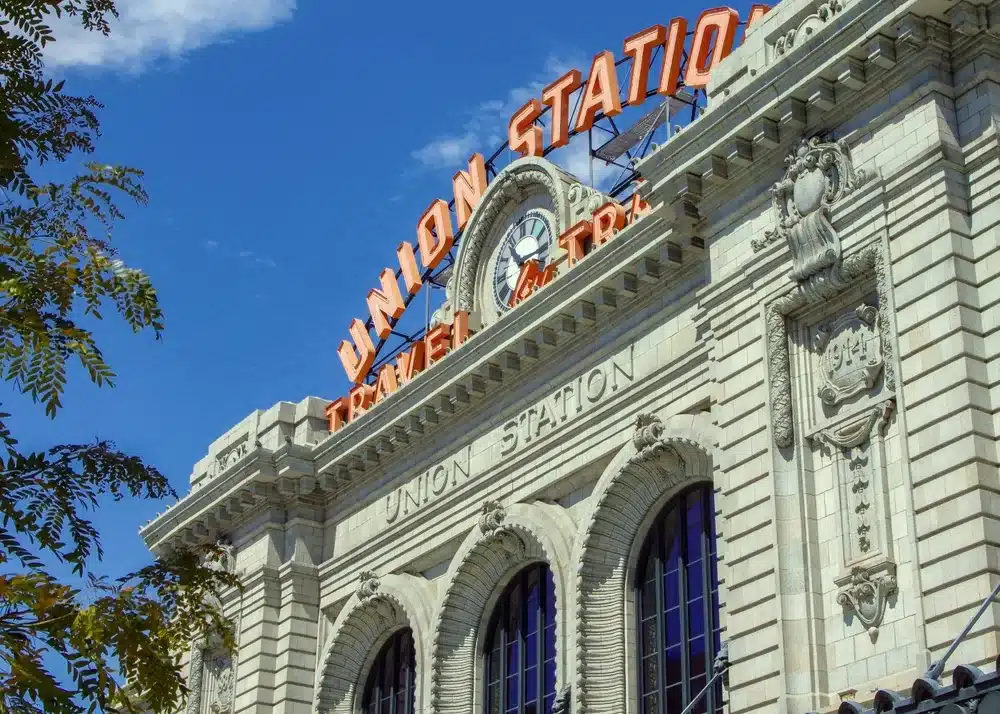
Let’s start with the good news: Denver is a somewhat walkable city with an excellent bike-sharing program. B-Cycle has 88 stations around the city, so you can grab and go just about anywhere you need to. The city has also invested in building an extensive public transportation system, including the public bus system and light rail line. The light rail is made up of 12 rail lines and 78 stations over 113 miles, making commuting by rail a breeze. And if you’re looking to make a trip, the light rail can get you from downtown Union Station to Denver International Airport in under 40 minutes.
The bad news: the commute for drivers in Denver can be rough. In fact, TomTom estimates Denverites give up an average of 140 hours in traffic each year. Yes, there are the normal morning and afternoon rush hours, but you will also be driving alongside tourists eager to see the Rockies and eager skiers looking for a good slope on the weekends.
Storage Solutions in Denver
Maybe you’re not quite sure where everything is going in your new home. Or maybe you don’t want to leave sentimental items freezing in the moving van during Denver’s frosty winters.
Whatever you’re trying to navigate, having a storage unit rented and ready can provide you with stress relief and flexibility as you move. You’ll have the opportunity to organize your belongings as you go rather than having a house full of boxes getting in your way as you try to settle in.
Denver has plenty of storage options available. Here’s what we recommend you look for before renting a unit:
- Convenient location and hours to make sure you can get what you need, when you need it.
- Unit sizes that fit your needs.
- Climate controlled units to protect your belongings.
- A robust security system to keep everything safe.
- Solid reviews from customers.
Note: Looking for something a little quieter just outside the city? Check out our guide on moving to Littleton—a charming suburb south of Denver.

![Relocating RVs: An Expert Guide to Finding RV Relocation Deals and Cheap Motorhomes for Rent [2025]](https://blog.storage.com/wp-content/uploads/2025/03/rv-relo.jpg)
